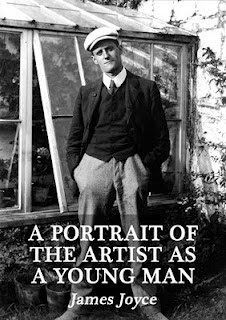'So between you I often wonder who I am and where is my country and where do I belong and why was I ever born at all.'
'Now they have taken everything away. What am I doing in this place and who am I?'
How could I resist this book? Despite earlier in this series of posts realising that I actually do like the novel 'Jane Eyre', my dislike for the characters in it remains. And here an opportunity for further derision and reasons to dislike Mr Rochester, or at least a character that I and must readers of this book have assumed is Mr Rochester as it is meant to be a re-imagining of 'Jane Eyre', however, the character is never actually named. The sense of self and the development of self is something that this novel explores and does very well. I identified with all the characters, they felt real. I could see their motivations, their underlying insecurities, and despite sporadic information that is often placed out time you come to see the characters as being truly multi faceted.
The novel is mostly set in Jamaica and follows the early life of Antoinette, or Bertha as we later come to know her, and the events leading up to her marriage to the nameless character that I am going to continue calling Mr Rochester. The novel explores the psychological damage of growing up isolated, hated by the local population, and without a strong parental figure. We see Antoinette's mother slowly be driven in to madness and her reaction when she eventually finds out about her mother's state. We see Antoinette and Mr Rochester's start of marriage, a marriage for money that Antoinette's family as well as Mr Rochester's push her into. In Mr. Rochester we see a young man, scared of the local population, unable to understand their motivations and eventually scared of his wife. We see Antoinette fall in love and we see the tragedy that come after. This novel is moving in a way that I didn't think I would find it. I expected to be angry at Mr. Rochester, I expected to be indignant for Antoinette, I did not expect to pity both of them so thoroughly.
The true tragedy of this novel is that we know what is going to happen, very few people who will go into reading this book with our some foreknowledge of the inevitable result, and yet we see a glimmer of happiness, they look like they are in love. Rhys gives us the smallest amount of hope, enough to keep us emotionally invested in the outcome and then destroys any hope of happiness through increasingly complicated tangles made worse by both the mains characters as well as those further out. The worst part of the misery that follows it the lack of one person the blame it on, all contribute to furthering the mess. If Jane and Mr. Rochester were destined to be together then Antoinette and Mr. Rochester were destiny's collateral.
This novel's chilling ending left me bereft, I genuinely felt like I lost something when reading this novel, an ability to completely believe in happy endings without a victim somewhere in the process perhaps. I would definitely read this again but it left me mournful.
I will have to see how heavily this has affected my dearly held positive opinion of 'Jane Eyre'.

